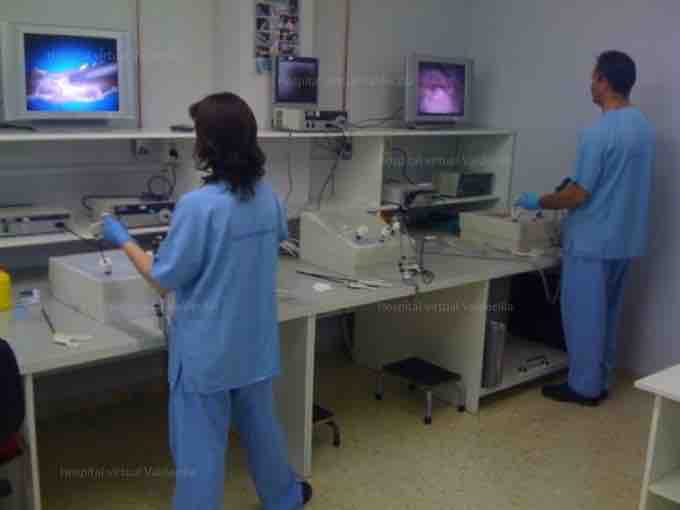To perform management functions and assume multiple roles, managers must be skilled. Robert Katz identified three managerial skills essential to successful management: technical, human, and conceptual. Technical skill involves process or technique knowledge and proficiency. Managers use the processes, techniques, and tools of a specific area. These are the specific skills and knowledge related to the individual's profession or specialization. Examples include project management skills for engineers building bridges, aircraft, and ships. Technical skills include the ability to properly operate a computer, efficiently use the various software programs that are required in a particular environment, and the utilization of other electronic devices that pertain to the job function. These skills are especially important for lower level managers, as they are often responsible for training their subordinates.

Training surgical technical skills with simulation at Valdecilla
Technical skills are especially important for lower level managers, as they are often responsible for training their subordinates.
Katz pointed out that training programs tend to focus on skills in this area. These skills are easier to learn than those in the other two groups. Managers use the processes, techniques, and tools of a specific area. A manager's level in the organization determines the relative importance of possessing technical skills. For instance, supervisors need technical skills to manage their area of specialty. As the pace of change accelerates and diverse technologies converge, new global industries are being created (e.g., telecommunications). Technological change alters the fundamental structure of firms and calls for new organizational leadership approaches and management skills.
At the top management level, conceptual and design abilities and human skills are especially valuable, but there is relatively little need for technical abilities. The assumption, especially in large companies, is that chief executives can utilize the technical abilities of their subordinates. In smaller firms, however, technical experience may still be quite important.